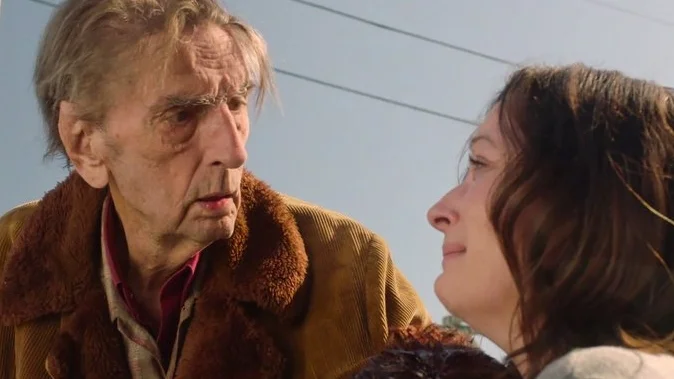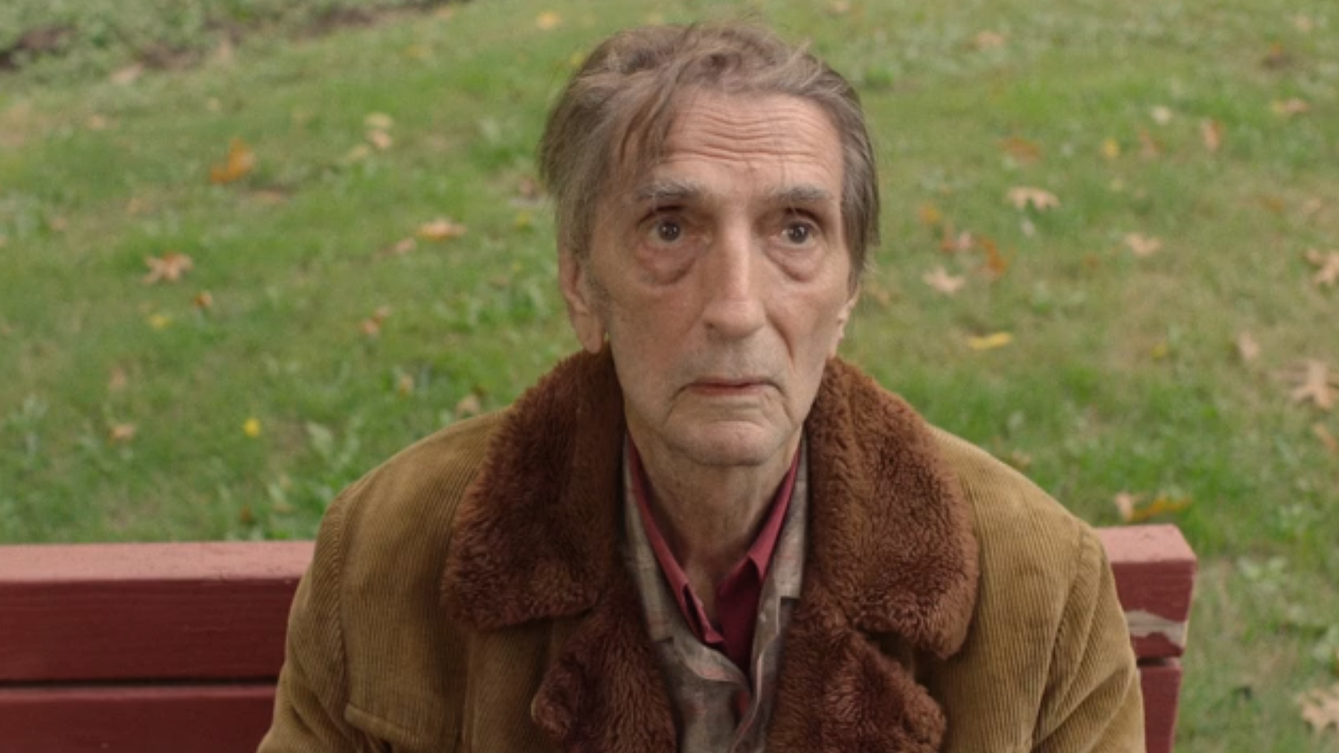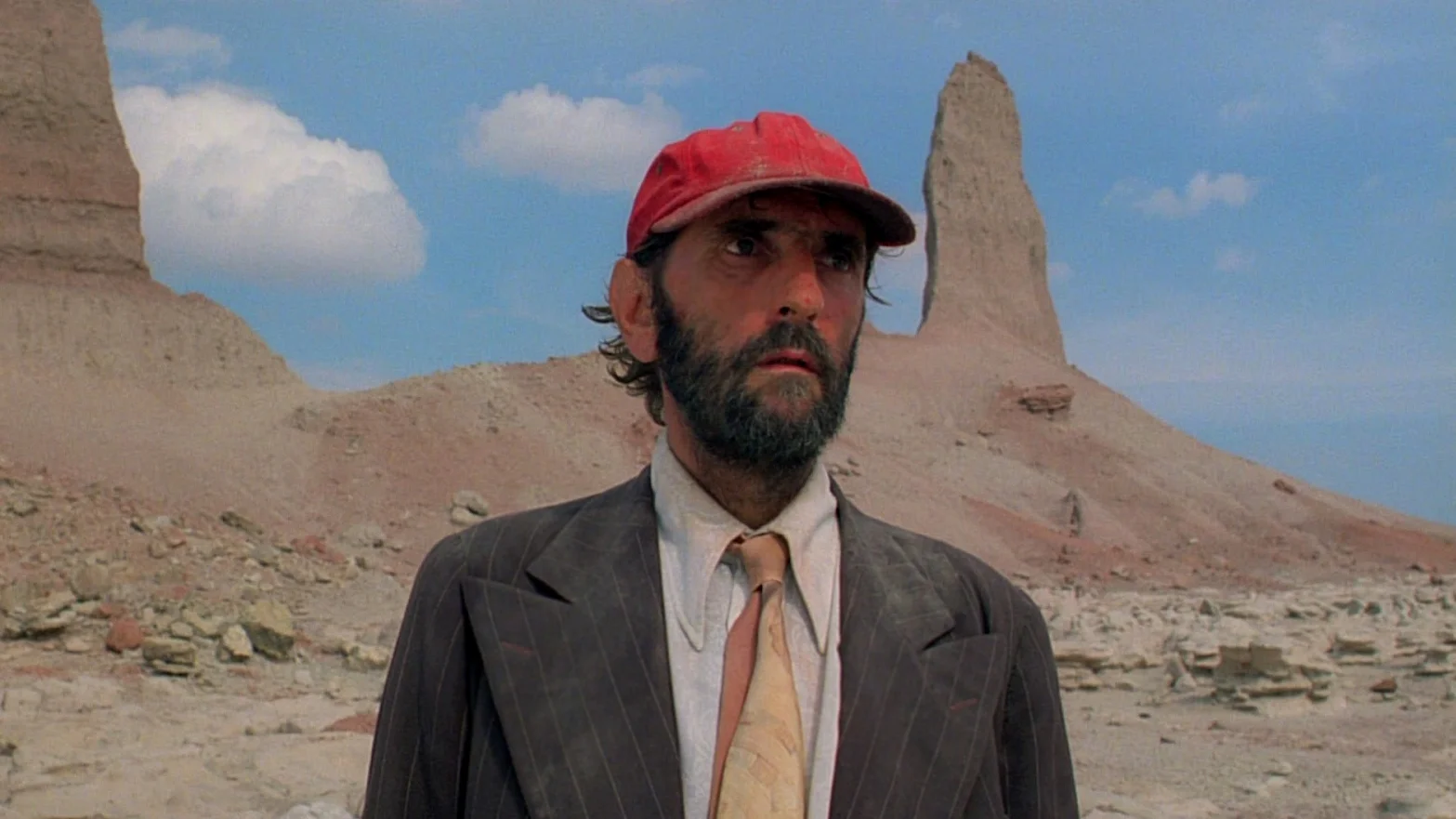Remember That Red River Valley: Harry Dean Stanton in Twin Peaks
This is part three of a Harry Dean Stanton retrospective, in honor of one of the greatest actors. This was written shortly before the actor's death at the age of 91.
“I’ve already gone places. I just want to stay where I am.”
- Carl Rodd, Twin Peaks: Fire Walk With Me
Harry Dean Stanton’s work embodies a certain ethos of its own; an atheistic ‘fuck-all’ to the cultures and communities which surround him. His roles consist of riotous rebellion, with repressed yet obvious portraits of melancholy, each expressing a side of the loner coin. Films like Paris, Texas and Repo Man are fundamental texts in terms of this duality, but the consideration is that, like any enigmatic figure, Harry Dean Stanton is just as aware of his own contradictions and such explorations provide an open-ended glance into a legendary actor.
Such conscious acknowledgement is found in the hands of David Lynch. Being friends and colleagues, their history extends far past their reunion in the upcoming Lucky, with his endeavors in earlier Lynch productions (Wild At Heart, Fire Walk with Me, and Inland Empire) distilling Stanton’s essence down to a purified state of being. The Twin Peaks prequel (and Season Three aka The Return), however, is the quintessential skeleton key, one even grander than the sideshows of Alien and Escape From New York and the emotional barn burners by Wenders and Alex Cox. While Fire Walk with Me mostly follows the final days, hours, minutes, seconds of Laura Palmer’s death, the initial story of the film is still one of Lynch’s most confounding puzzle pieces. Set in Deer Meadow, Washington, a kind of existential, alienating cosmic inverse of the town viewers grew to love, Lynch showcases the hunt for Teresa Banks’ murderer and the search for clues within this in-between space, one fighting against fan service and expectation, recapturing tenor and mood. Detectives Chester Desmond and Sam Stanley encounter a trailer park, one named ‘Fat Trout’, on their journey, and it is here where a certain spiritual lock is opened, not only of Stanton’s degree of performance, but his riddle.
Lynch, casting him as trailer park manager Carl Rodd, provides Stanton with a character of his personal representation. Carl Rodd, in his extremes, mellows, and unanswerable strangeness and kindness, is Harry Dean recreated, sent through a teleporter and assembled back to life on the screen. He is an integral cameo in the prequel film and the third season, for his life force melds to the world’s energy casting down on him. If the day is being kind, then the light is bright, but don’t expect a happy camper early in the morning or within a consciousness of tragedy and despair. Through Stanton’s performance, an ultimate truth is found, one that recognizes the blurred line between emoting and the legitimacy of such delicate emotions. In this odd, Lynchian-verse, Stanton has been given the opportunity to become himself via the process of playing someone else.
The character, Carl Rodd, has had quite a history, and if you follow the rabbit hole of Twin Peaks Lore, you’ll be lost forever in alternate realities and strange sightings and vivid dream worlds. From The Secret History of Twin Peaks, written by Mark Frost, we know of Rodd’s disappearance as a boy, his graduation from Twin Peaks High School, an unknown marital journey as a result of an Anchorage earthquake, and his stint as a tracker. Like Stanton, Rodd is an individual who has wandered the world and found many interesting things, but nothing greater than love. Such concepts may be meaningless beyond our own conception of time and space, but the in-the-moment legitimacy still stands. As an owner of two separate trailer parks, one in Deer Meadow, one in Twin Peaks, the role of caretaker and provider is cemented. He is firm, grumpy, kind, empathetic, and he encompasses a spectrum of emotion. It wouldn’t be surprising if he was granted the ability to first communicate with alien life.
In a particularly horrifying yet memorable moment from Twin Peaks: The Return, Rodd runs out to a mother and her dead son after a hit and run. As he expresses comfort and security in the aftermath, he is not unaware of the golden orb rising from the lifeless body of the boy. Rodd, much like Stanton’s persona, is one of compassion in the everyday, yet still haunted by forces beyond our control. An embrace in a tragic event, in its own way, means just as much as a visualization of enlightenment of the owls in the woods. Much of his presence in The Return revolves around that sincerity, of grasping the incomprehensibility of the universe and continuing to respect those who can’t. You might see him as an ‘atheist with a heart of gold’ (and yes, although it is a strange world, it is one without gods), especially when he’s strumming his guitar on a cloudy day and glancing up at the branches swaying in the wind. The Return finally grants Stanton’s spirit closure for all the love he’s given, and all the joy he’s provided on screen. And here, Lynch sings, in his harsh, ethereal fashion, that even just that presence is enough to create a meaning of your own. Even if there’s nothing after, the void takes it all back anyway. Stanton is guiding us in, hands clasped.










